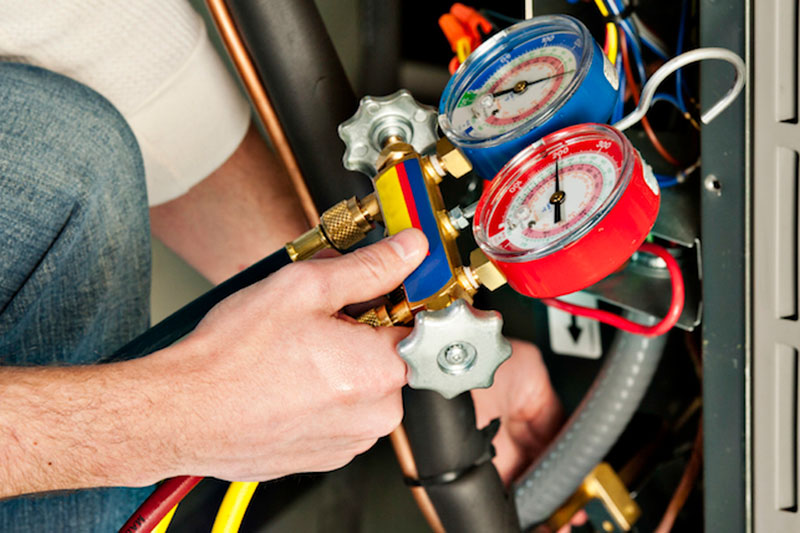
You might not think often about how your air conditioner functions, but it relies on refrigerant to keep your residence cold. This refrigerant is subject to environmental rules, since it contains chemicals.
Depending on when your air conditioner was put in, it may need R-22, R-410A or R-32 refrigerant. We’ll go over the differences and which air conditioner refrigerants are being phased out in Saint Louis, as well as how these phaseouts affect you.
What’s R-22 and Why Is It No Longer Being Made?
If your air conditioner was installed before 2010, it possibly has Freon®. You can discover if your air conditioner has it by contacting us at 314-262-4541. You can also look at the name plate on your air conditioner condenser, which is situated outside your residence. This sticker will have details on what model of refrigerant your AC uses.
Freon, which is also called R-22, contains chlorine. Scientists consider Freon to be harmful to the earth’s ozone layer and one that prompts global warming. The Environmental Protection Agency, which manages refrigerants in the United States, outlawed its production and import in January 2020.
Should I Replace My R-22 Air Conditioner?
It depends. If your air conditioning is operating as designed, you can continue to run it. With yearly air conditioner maintenance, you can expect your system to work around 15–20 years. However, the Department of Energy says that removing a 10-year-old air conditioner could save you 20–40% on yearly cooling costs!
If you don’t install a new air conditioner, it may create an issue if you have to have air conditioning repair down the road, specifically for refrigerant. Repairs can be higher-priced, as only limited levels of recycled and reclaimed R-22 is accessible.
With the end of R-22, most new air conditioners now rely on Puron®. Also known as R-410A, this refrigerant was developed to keep the ozone layer healthy. Since it requires a different pressure level, it doesn’t work with air conditioners that rely on R-22 for cooling.
However, Puron still has the potential to lead to global warming. As a result, it might also eventually be ended. Although it hasn’t been communicated yet for residential air conditioners, it’s likely sometime this decade.
What Refrigerant Will Take Over R-410A?
In preparation of the phaseout, some companies have initiated using R-32 in new air conditioners. This refrigerant rates low for global warming likelihood—about one-third less than R-410A. And it also decreases energy use by approximately 10%, according to the Intergovernmental Panel on Climate Change’s Fourth Assessment Report. That’s savings that may be sent on to you through your energy expenses.
Morgner Inc. Air Conditioning & Heating Can Provide Support with All Your Air Conditioning Needs
In summary, the alterations to air conditioner refrigerant probably won’t affect you greatly until you have to have repairs. But as we talked about earlier, refrigerant-related repairs might be pricier because of the restricted quantities that are accessible.
In addition to that, your air conditioner typically stops working at the worst time, frequently on the warmest day when we’re experiencing many other appointments for AC repair.
If your air conditioner relies on a phased out refrigerant or is aging, we advise upgrading to a new, energy-efficient air conditioner. This ensures a stress-free summer and might even reduce your cooling costs, especially if you choose an ENERGY STAR®-rated air conditioner. Plus, Morgner Inc. Air Conditioning & Heating has many financing options to make your new air conditioner fit your budget. Contact us at 314-262-4541 to begin right away with a free estimate.
